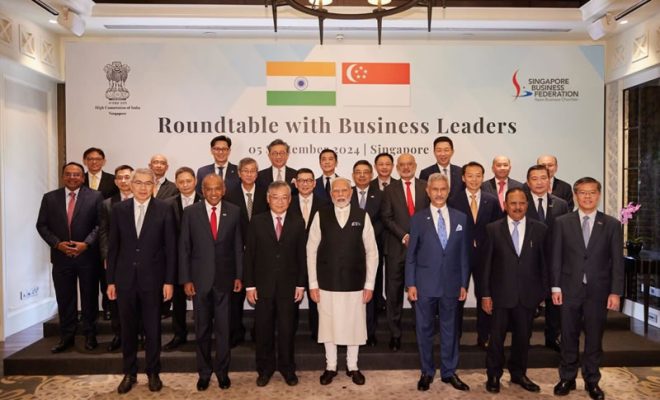India-Singapore Calls For UNCLOS

India and Singapore have aligned themselves in a bid to urge the South China Sea dispute to be calm. It was during Prime Minister Modi’s visit to Singapore that both countries reaffirmed their respect for international laws including, UNCLOS among others. They wish people to sort out issues without necessarily engaging in war and every country in the region should be afforded equal recognition.
Key points from the India-Singapore Joint Statement:
- Both sides “reaffirmed their commitment to the principles of freedom of navigation in and over-flight over the South China Sea as provided for under the UNCLOS.”
- They demanded the non-use of threats or force in the settlement of disputes by all the parties involved.
- The leaders noted that UNCLOS provides the legal regime for all states’ actions in the sea and the foundation upon which maritime rights, sovereign rights, and jurisdiction may be established.
- They seek an early conclusion of a realistic and meaningful Code of Conduct in the South China Sea that takes into account the legal rights of all countries including those that are outside the negotiating process.
Other important issues that cropped up for the attention of two prime ministers were the Prime Minister of India, Mr Modi, and his Singaporean counterpart PM Lawrence Wong.

Also Read | Indian Graduates in Canada Rally Against Policy Changes Amid Deportation Threats
1. Terrorism
Both leaders agreed that terrorism is the biggest menace to world order and agreed to fight terrorism in all its forms and manifestations.
2. Regional stability
They stressed that prosperity and security are mutually dependent, and said that it is important not to aggravate tensions in the region.
3. International law
Both leaders agreed that the issue of maritime disputes should follow international law, especially the UNCLOS.
This is a joint statement while there is tension in the South China Sea where some countries have laid down their claims. By demanding for peace and compliance with international law, India and Singapore have made a clear stance over the matter by seeking order and partnership in the Indo-Pacific region.



